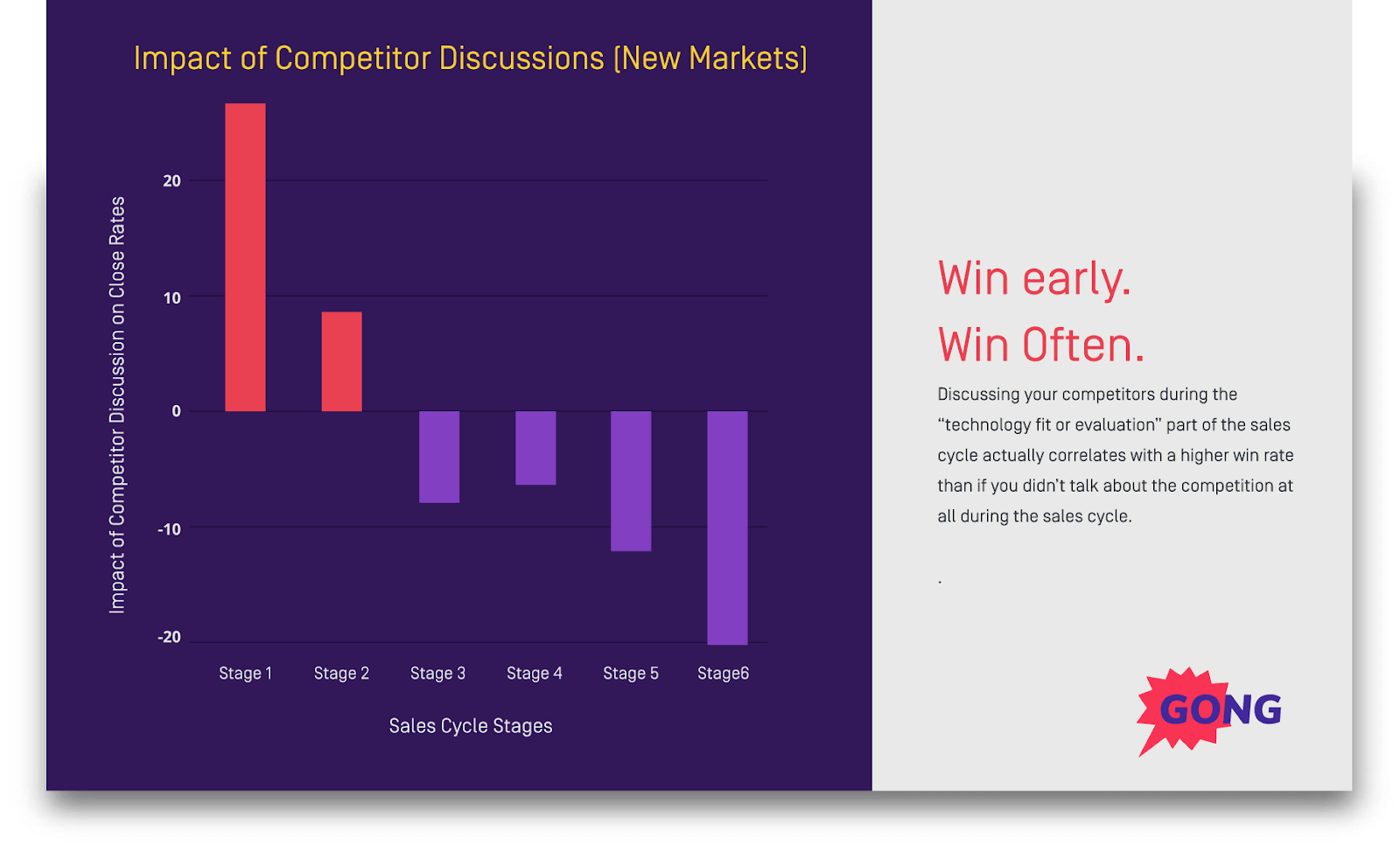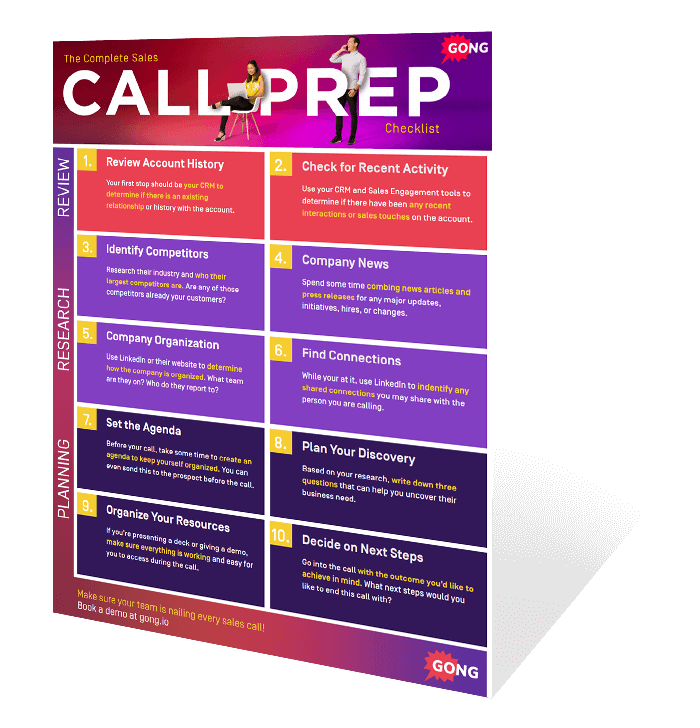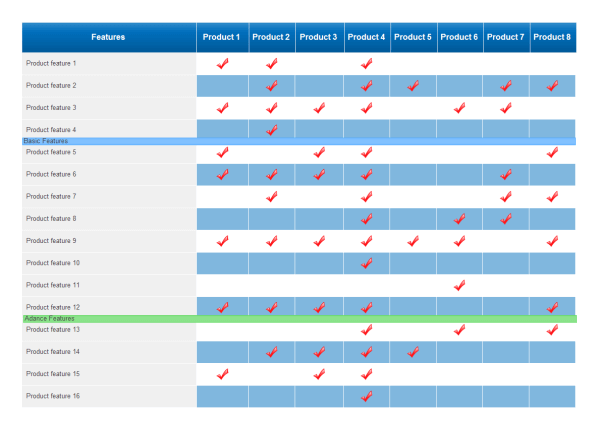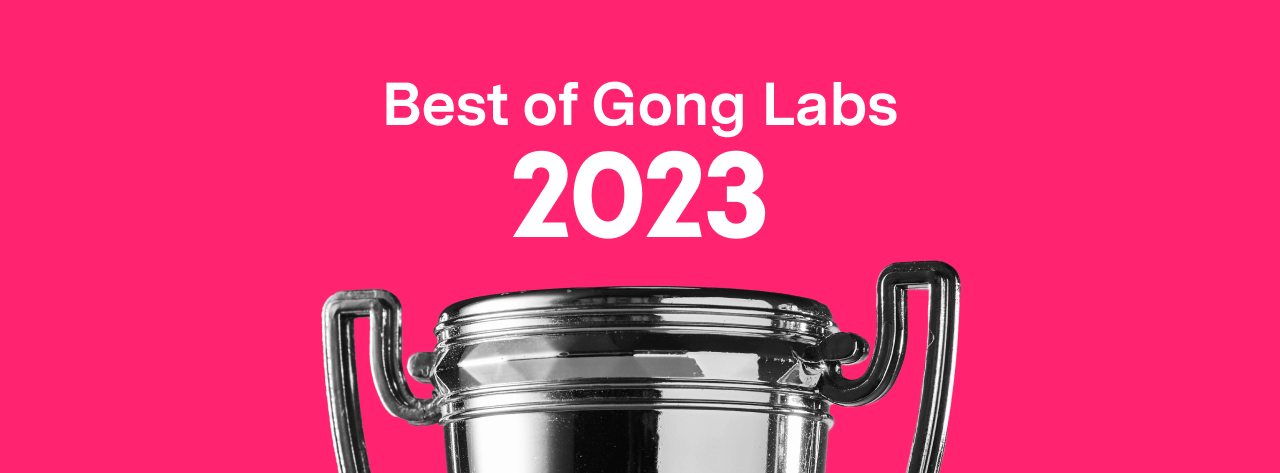
In the Gong Labs series, you get fresh research from the analysis of sales conversations with AI. Subscribe here to get insanely great sales tips.
Tired of losing deals to your competition?
Let’s fix that for good.
You’re going to learn seven super-effective tactics for crushing your competition.
The best part? None of them involve dropping your price.
Each of these is unfair. But they are all ethical. They’re only unfair because they work so well :)
Here are the seven tactics we’ve uncovered through both data AND hard-won experience.
PS: The best way to really crush your competition is to PREPARE for your calls.
Download our free sales meeting prep checklist to start winning more deals today:
ONE: Lead TO your strength (not WITH it)
It’s not enough to be different from your competition.
Your buyers must VALUE your difference if you’re going to win.
Here’s how to make sure that happens: TEACH your buyer about a problem that only YOU can solve. Do that before you introduce your strength.
This video is a GREAT example of that.
Notice this approach makes buyers VALUE your strength.
If that pitch had started with the unique product feature, it would fall flat.
Need another example? Here’s how we do this at Gong.
Our sales reps START with teaching the buyer about a problem only we can solve:
Most sales teams only have a few great reps, while everyone else is average:
It sounds like this:
Overachievement from your best reps is great! But, it’s canceled out by everyone else who misses quota. That puts you at a HUGE risk of missing your number.
When the moment is ripe, only NOW do we show one of our unique strengths.
We’re the only ones who can show you what separates your best reps from the rest during customer conversations:

Do you see the difference between leading TO your strength, versus leading WITH it?
Make sure your buyer values your strength through TEACHING.
If you don’t, you’re not selling. You’re guessing :)
TWO: Find a weakness WITHIN your competitors’ strength
You read that right. Notice I didn’t say “find a weakness, and exploit it.”
Here’s why that’s a bad idea: Your competitor already has a rebuttal for that. And, they’re probably working on CORRECTING that weakness.
Do this instead: Find a weakness WITHIN their strength. And then use that against them.
This is “sales judo.”
Want an example? Let’s look at the Burger King vs. McDonald’s rivalry.
In the 1980s, Burger King took inventory of McDonald’s strengths.
They found that children valued McDonald’s — it was the place for kids to have fun.
In fact, McDonald’s built its entire positioning on being a place for kids. Happy Meals, Play Place, and Ronald McDonald all reinforced that image.
So, Burger King used that strength against them.
They positioned Burger King as being for GROWN UPS. It’s the place to get a hardy, BIG KID burger.
This strategy didn’t JUST attract adults. It attracted young children who wanted to be “BIG KIDS.”
The best part? McDonald’s couldn’t DO anything about this. It was a bullet-proof strategy. McDonald’s would have to DENY their own strengths.
Genius.
THREE: Win early, or perish
I’ll let you in on a secret: Competitive deals are GOOD.
They are more likely to close than deals that are NOT competitive.
According to our data, when buyers mention your competitors EARLY in the sales process, your close rates INCREASE.
BUT… Take a look at the chart. When buyers mention your competitors LATE in the sales process, your close rates DROP.
The moral? Competitive deals are good, but only if you WIN EARLY. You’ve got to box out the competition right out of the gate.
How do you win early?
Influence your buyer’s preferences in YOUR FAVOR by using tactic #1 discussed above.
If you’re a sales MANAGER, here’s how to take advantage of this fact: Get involved in competitive deals early on.
Setup an alert every time a buyer mentions a competitor on a sales call:
Your competitors won’t be able to fly under your radar anymore.
NOW… if you’re going to win early, you REALLY need to prepare for your sales calls.
Use our free sales meeting prep checklist:
Download it today, and you’ll never be flat-footed against a competitor.
FOUR: Avoid the feature comparison death trap
If you rely on a specific feature to differentiate, you’re walking down a dangerous road.
Your differentiator has to be “meta,” not slightly better than your competitor.
When you rely on the extra bells and whistles your product has to win, your buyer puts you in a death trap.
They create the dreaded feature spreadsheet to compare the competing products.
It becomes a bakeoff. A spec war.
You one-up your competitor with Feature A.
They one-up you with Feature B.
This vicious cycle continues. When the screen finally fades to black, the buyer sees the product as more or less the same.
So they grind you both down on price until someone “wins.”
How do you avoid this trap?
Your differentiator has to be “meta.” Not incremental. Get out of the side-by-side comparison.
Need an example?
Every now and then, we sell to B2C sales call centers (rather than our core market: B2B sales).
This opens up a new set of competitors: Call center speech analytics providers.
When THESE buyers ask how we’re different, the WORST thing we can do is explain how our features are better.
So we change the game:
“We’re the only solution designed for sales.”
“The others are for customer service or support.”
When we’re selling to a sales call center, this resonates. It’s a simple message.
The buyer places us in a different category. You’ll see no feature wars here.
Go “meta” with your differentiation.
FIVE: Keep your message SIMPLE
Most sales reps say too much.
They believe the more uniques features they rattle off, the better.
Sounds right in theory. But it doesn’t work. In fact, it LOSES you deals.
Your message should be simple. Punchy. Easily remembered.
The more you say, the less people remember.
Don’t dilute your message with an endless number of unique features or points. That’s like watering down top-shelf scotch.
You want your message to be CONCENTRATED.
If your differentiation pitch is not easily remembered, go back to the drawing board.
SIX: Rise above “mud-slinging”
I’m sure you’ve had it happen to you: Your competitor “throws mud.”
They badmouth you. Tear you down. Even LIE.
The worst thing you can do is meet them at their level. As soon as you retaliate, your customer views both of you like two little kids arguing over a toy.
You both lose credibility.
Here’s what to do instead. I call it the “high ground tactic.”
When your competitor throws mud, respond by explaining the situation at a higher level of maturity. Act as if you’re an adult explaining to a child (your competitor) how things work.
Here’s an example:
- Customer: Your competitor says you botched your enterprise deployment at XYZ corp.
- You: They’re not wrong. That was a tough learning lesson for us. Fortunately, we’ve learned a lot about what works and what doesn’t since then. In fact, that led us to form our customer maturity path. Today it’s working wonderfully! I’d love to show it to you.
You’ve elevated yourself in your customer’s eyes. They think of your competitor as a bickering child. Even if only subconsciously.
Compare that with the WRONG way to respond:
- Customer: Your competitor says you botched your enterprise deployment at XYZ corp.
- You: Not at all! In fact, you should ask THEM about their failed enterprise deployments. They definitely have more than us!
Weak move.
SEVEN: Feed your buyers with “landmines”
What’s a landmine?
It’s a TOUGH QUESTION you tell your buyer to ask your competitors.
These are questions that will “trip up” your competitor. They are tough to defend against.
You should have 2-3 landmines up your sleeve. Tell your buyer to ask them as soon as your competitors enter the picture.
I’d LOVE to help you come up with your own landmine questions.
But I can’t do it in this post. It’s too dependent on your situation.
So here’s the deal:
For TWO randomized commenters below: I’ll help you come up with your own landmine questions.
Comment with your favorite tactic from this post to win a free “landmine brainstorm” :)










